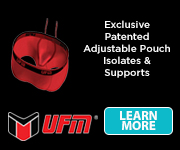Seven Important Tips Before You Try Boondocking
There are those newbie RVers who wish to boondock full time, and only occasionally visit an RV park. While most RVs are designed for staying in campgrounds, with full hookups for electricity, water and sewer, most RVs can function almost as well when camping off grid. If your goal is to boondock fulltime, you'll want to keep these 7 tips in mind.
#1) Inspect the Road Before You Take Your RV In: Most RVs are not designed for serious off road use, so make sure it is safe before you go in; you want to be able to get back out. If your goal is to go deep into the wilderness, then the best choice would be a 4x4 truck camper, or a small, light weight trailer, with high ground clearance, towed by a 4x4 SUV or truck. A smart move would be to stay in an RV park in the area you are interested in, and take your truck or tow car to check out boondocking spots, or, park the RV along the main road, and walk in for a look. The road should not be sandy or muddy, and free of deep tire ruts. You should have room to turn your rig around, out of any boondocking spots. If you have solar paanels, there should be sun.
#2) Don't Encroach on Anyone's Space: Other campers you see in a boondocking area are there becuse they want to get into nature, and away from people. This is not an RV park, so don't park right next to another camper. Other boondockers are not unfriendly, they simply don't want you encroaching on their space. Also, don't invade another camper's space with loud music, or by running a generator 24/7.
#3) Use Paper Plates and Take Short Showers: Water is on limited supply while boondocking. You probably don't need to shower every day, and paper plates can go into the campfire. You can also save any dish water for flushing the toilet, and tap off grey water for drowning the campfire.
#4) Natural Air Conditioning: Turn on your RV air conditioner only when you really need it, and open windows and vents to the cool night air, to bring the RV to a comfortable temperature in the morning. Also shield your RV windows against the heat by putting down the shades, and using Reflectix; Reflectix is a silver bubble wrap. It can reduce the temperature by 5-10 degrees. If you are on solar, and are in a climate with low humidity, a portable evaporative cooler takes very little energy, unlike the roof air conditioner.
#5) Pack It In, Pack It Out: It's unlikely you will have a dumpster nearby, so you will have to store all of your own garbage, so it can be disposed of after you leave, in a proper dumpster. Keep your garbage away from wild animals; you can keep it in your tow car, or in a sealed container in the back of your truck, or in a compartment on the outside of the motorhome. Also, separate your non-paper and paper trash, and burn the paper trash in yout camp fire (always play with fire responsibly, and be aware of any fire restrictions).
#6) Make Smart Food Choices: Successful boondocking depends on planning ahead. You will not have easy runs to the grocery store. Plan easy, simple meals, with ingredients that can be used a few different ways. Buy easy to cook, nutritious foods, and most importantly, easy to clean up.
#7) Use the Local Terrain to Your Advantage: When scouting for a place to boondock, examine the terrain; where will the sun rise, and where will the sun set? How can you angle the solar panels for the best sun exposure? If the weather is hot, can you find a spot with afternoon shade? Does the spot have a nice view? Is it easy access? Is the ground level and solid? Is it safe to park there? Is it away from the main road?
It may seem like there are many things to consider, but once you gain some experience, boondocking will become second nature!
Sponsors
Become An Affiliate For Fiverr
My Projects
Subscribe
Subscribing will enable you to get regular notifications about new postings...






